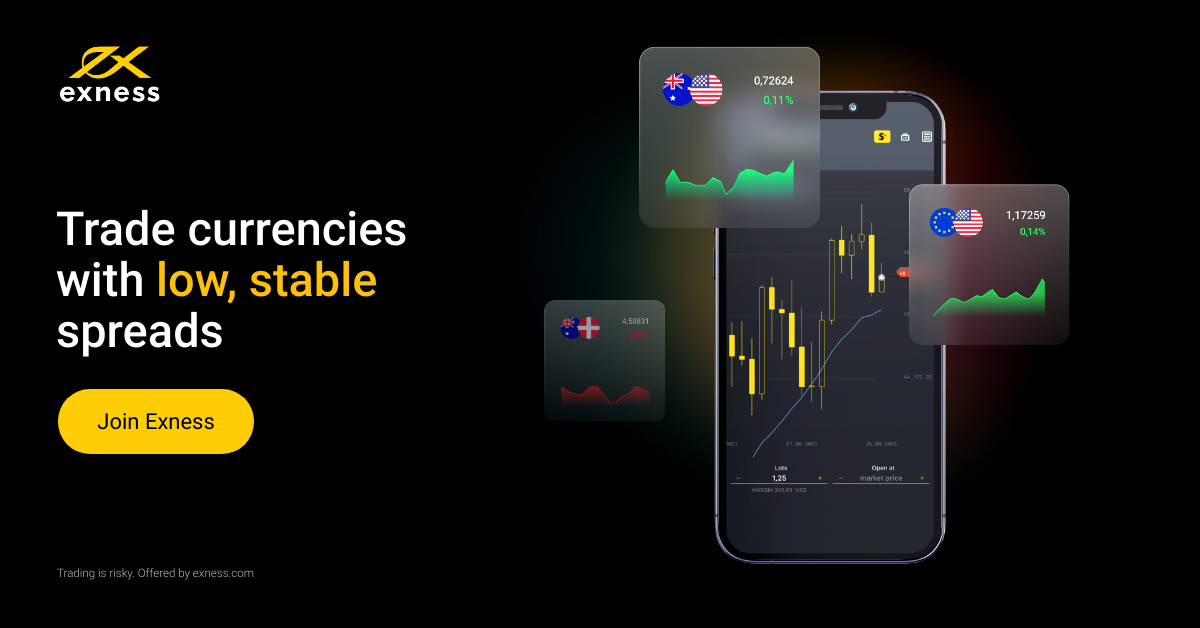
This article aims to provide a comprehensive understanding of how broker fees operate in the context of Forex trading. Given the complex nature of this market, it is essential for traders to have a clear grasp of the various types of fees they may encounter and their potential impact on profitability.
The article will explore different types of broker fees, including spreads, commissions, swaps, and overnight fees. It will also delve into the factors that influence broker fee structures, such as market liquidity and competition among brokers.
Furthermore, the article will offer strategies for maximizing profits while managing and minimizing broker fees. By adhering to an objective and impersonal writing style throughout this guide, readers can expect an unbiased analysis that provides valuable insights into navigating the intricacies of broker fees in Forex trading.
Types of Broker Fees in Forex Trading
There are several types of broker fees associated with Forex trading, including spread fees, commission fees, swap fees, and inactivity fees.
Spread fees are the most common type of fee charged by brokers in Forex trading. They refer to the difference between the buying and selling price of a currency pair and represent the cost of executing a trade. This fee is usually variable and can vary based on market conditions and liquidity.
Commission fees are another type of broker fee that may be charged on top of spread fees. These fees are typically fixed or based on a percentage of the trade value and are charged for each transaction made. Commission-based pricing structures often appeal to active traders who make frequent trades.
Swap fees, also known as rollover or overnight interest rates, are charges incurred when holding positions overnight. They arise from the differences in interest rates between the two currencies being traded. If a trader holds a position past 5:00 PM Eastern Standard Time (EST), they may incur swap fees.
Lastly, some brokers charge inactivity fees for dormant accounts or accounts with no trading activity over a specified period. These fees aim to incentivize traders to remain active and prevent unnecessary account maintenance costs for brokers.
Understanding these different types of broker fees is crucial for Forex traders as they directly impact overall trading costs and profitability. Traders should carefully consider their trading strategy, frequency of trades, and account activity when selecting a broker with favorable fee structures.

Understanding Spreads in Forex Trading
Spreads in Forex trading are a crucial aspect to comprehend as they determine the difference between the bid and ask prices, reflecting the transaction cost for traders.
In simple terms, a spread represents the gap between these two prices and is primarily influenced by market liquidity, supply and demand dynamics, and broker policies.
Forex brokers typically offer two types of spreads: fixed spreads and variable spreads. Fixed spreads remain constant regardless of market conditions, providing traders with certainty regarding their transaction costs. On the other hand, variable spreads fluctuate depending on market volatility, widening during periods of high uncertainty and narrowing when markets are relatively stable.
The size of the spread directly impacts a trader’s profitability. A wider spread means that more pips need to be gained to cover the transaction cost before any profits can be realized. Consequently, it is essential for traders to choose a broker offering competitive spreads that align with their trading strategies.
Furthermore, understanding how spreads work can help traders effectively manage risk. By keeping track of spread fluctuations and monitoring economic events or news releases that may impact market volatility, traders can make informed decisions about when to enter or exit trades.
Overall, comprehending spreads in Forex trading is essential for traders as it directly affects their transaction costs and potential profitability. Being aware of different types of spreads offered by brokers enables informed decision-making while managing risk effectively in dynamic markets.
How Commissions Affect Your Trading Profits
Commissions play a significant role in determining the overall profitability of trades, evoking a sense of financial responsibility and strategic decision-making among traders.
When engaging in Forex trading, it is important to understand how commissions can affect your trading profits.
Forex brokers typically charge commissions for executing trades on behalf of their clients. These commissions are usually based on a percentage of the total value traded or a fixed fee per trade. The size of the commission can vary depending on the broker and the type of trading account.
The impact of commissions on trading profits can be substantial. High commission rates can eat into potential gains and make it more challenging to achieve profitable outcomes. Traders must carefully consider the cost-benefit analysis before selecting a broker with regards to their commission structure.
Furthermore, traders need to balance out commission costs with other factors such as spreads, execution speed, and quality of service provided by brokers. It is crucial to find a brokerage that offers competitive commission rates while also meeting other important criteria for successful Forex trading.
In conclusion, understanding how commissions affect your trading profits is essential for effective decision-making in Forex trading. By considering various factors such as commission rates, spreads, and quality of service offered by brokers, traders can optimize their overall profitability and ensure long-term success in this financial market.
Exploring Swaps and Overnight Fees
Swaps and overnight fees are additional costs that traders need to consider when engaging in forex trades, as they can impact the overall profitability of the trading strategy.
A swap, also known as a rollover or an overnight interest rate, is the interest paid or earned for holding a position overnight. In Forex trading, currencies are traded in pairs, and each currency has its own interest rate. When a trader holds a position past 5:00 pm Eastern Standard Time (EST), they may incur a swap fee.
The swap fee is calculated based on the interest rate differential between the two currencies in the currency pair being traded. If the trader is long on a currency with higher interest rates relative to the other currency in the pair, they will earn swaps. Conversely, if they are short on a currency with higher interest rates relative to the other currency in the pair, they will pay swaps.
It’s important to note that some brokers offer competitive swap rates or even positive swaps for certain currency pairs. This means that traders can potentially earn additional income by holding specific positions overnight.
Traders should also be aware of any additional fees charged by their broker for overnight positions. These fees can vary among brokers and may include administrative charges or mark-ups on swap rates.
In conclusion, swaps and overnight fees are crucial considerations for Forex traders as they can affect their overall profitability. Traders should carefully evaluate these costs and consider them when formulating their trading strategies.
Factors That Influence Broker Fee Structures
One important aspect to consider when evaluating the cost structure of a brokerage firm is the range of available trading platforms. The type and number of trading platforms offered by a broker can significantly impact the fee structure. Brokers may offer different types of platforms, such as desktop-based, web-based, or mobile applications, each with its own set of features and functionalities.
The fees charged by brokers can vary depending on the platform chosen by traders. For example, some brokers may charge higher fees for using advanced trading platforms that offer additional tools and analytical features. On the other hand, basic trading platforms with limited functionalities may have lower associated costs.
In addition to the range of available trading platforms, other factors can influence broker fee structures. These include account types, trade volume, and deposit amounts. Some brokers offer different account types with varying fee structures tailored to different types of traders. Traders who execute larger volumes of trades may be eligible for discounted fees or lower spreads.
Furthermore, some brokers may require a minimum deposit amount to open an account or maintain certain balance levels in order to access specific fee structures. It is essential for traders to carefully evaluate these factors before choosing a broker as they can significantly impact overall trading costs.
Maximizing Profits in Forex Trading
To optimize financial gains in the foreign exchange market, traders can employ strategic techniques and analytical tools that enhance their decision-making process. Maximizing profits in Forex trading requires a thorough understanding of market dynamics, risk management strategies, and effective trading practices.
One important aspect to consider when aiming for higher profits is the selection of currency pairs. Traders should focus on major currency pairs that offer high liquidity and tight spreads, as these provide better opportunities for profit generation.
Additionally, it is crucial to stay updated with economic indicators and news events that can impact currency movements. This information enables traders to identify potential trading opportunities before they occur and take advantage of favorable market conditions.
Implementing proper risk management techniques is also essential for maximizing profits in Forex trading. Traders should set clear stop-loss and take-profit levels for each trade to limit potential losses and secure profits. It is advisable to use appropriate position sizing techniques based on account size and risk tolerance to ensure capital preservation.
Furthermore, utilizing technical analysis tools such as moving averages, trend lines, and oscillators can help identify entry and exit points with higher accuracy. These tools enable traders to make informed decisions based on historical price patterns and market trends.
In conclusion, maximizing profits in Forex trading involves employing strategic techniques such as selecting the right currency pairs, staying updated with economic indicators, implementing proper risk management strategies, and utilizing technical analysis tools effectively. By following these practices diligently, traders can enhance their profitability in the foreign exchange market.

Managing and Minimizing Broker Fees
Managing and minimizing the costs associated with transactions in the foreign exchange market necessitates a comprehensive understanding of broker fees and their potential impact on overall profitability.
Broker fees are charges imposed by brokers for facilitating trades in the Forex market. These fees can vary significantly between different brokers and may include spreads, commissions, and other charges.
One effective strategy for managing broker fees is to compare and choose brokers that offer competitive rates. It is important to consider not only the commission charged but also other factors such as execution speed, customer support, and trading platforms provided by the broker. By conducting thorough research and due diligence, traders can select brokers that offer favorable fee structures without compromising on quality.
Another way to minimize broker fees is to optimize trade size. Trading larger volumes can lead to lower percentage-based commissions, which can help reduce transaction costs in the long run. However, it is crucial to strike a balance between trade size and risk management to avoid excessive exposure.
Furthermore, some brokers offer fee rebates or discounts based on trading volume or loyalty programs. Taking advantage of these incentives can further reduce overall transaction costs.
In conclusion, managing and minimizing broker fees in Forex trading requires a careful evaluation of various factors such as fee structures offered by different brokers, optimizing trade sizes, and taking advantage of any available discounts or rebates. By implementing these strategies effectively, traders can enhance their profitability in the Forex market.
Frequently Asked Questions
Are broker fees the same for all currency pairs in Forex trading?
No, broker fees are not the same for all currency pairs in Forex trading. The fees charged by brokers vary based on factors such as the liquidity of the currency pair, market conditions, and the specific brokerage firm.
Different currency pairs have different levels of liquidity and volatility, which can affect the costs incurred by brokers. Traders should carefully consider these variables when choosing a currency pair to trade in order to minimize their overall trading costs.
How often do broker fees change and can they be negotiated?
Broker fees in Forex trading can change depending on various factors such as market conditions, competition among brokers, and regulatory changes. These fees are not static and can be subject to regular revisions by the broker.
While some brokers may have fixed fee structures, others may offer flexibility for negotiation based on factors like trading volume or account size.
It is important for traders to regularly review their broker’s fee structure and consult with them directly regarding any potential negotiations.
Do all brokers charge overnight fees for holding positions overnight?
Not all brokers charge overnight fees for holding positions overnight in Forex trading. Whether or not a broker charges these fees depends on their specific policies and the type of account being used.
Some brokers may offer accounts with no overnight fees, while others may charge varying rates based on factors such as the currency pair being traded and the size of the position held.
Traders should carefully review a broker’s fee structure before opening an account to understand any potential overnight charges that may apply.
Are there any hidden fees that traders should be aware of?
Traders should be aware of potential hidden fees while engaging in Forex trading. These fees may include but are not limited to, account maintenance charges, withdrawal fees, and inactivity fees.
It is crucial for traders to thoroughly review the terms and conditions provided by brokers to understand the full extent of these charges. By being knowledgeable about such hidden fees, traders can make informed decisions and effectively manage their overall trading costs.
Can broker fees significantly impact the profitability of a trading strategy?
Yes, broker fees can significantly impact the profitability of a trading strategy in Forex. These fees, such as spreads and commissions, are incurred by traders for executing trades through brokers.
High fees can reduce potential profits or even result in losses for traders. It is important to carefully consider the fee structure of a broker when selecting one, as lower fees can enhance profitability and improve overall trading performance.
Conclusion
In conclusion, understanding how broker fees work in Forex trading is essential for maximizing profits and managing costs. Traders need to be aware of the different types of fees, such as spreads, commissions, and swaps, and how they can impact their trading profits.
Additionally, factors like the type of account and trading volume can influence fee structures. By carefully managing and minimizing broker fees, traders can optimize their profitability in the Forex market.


